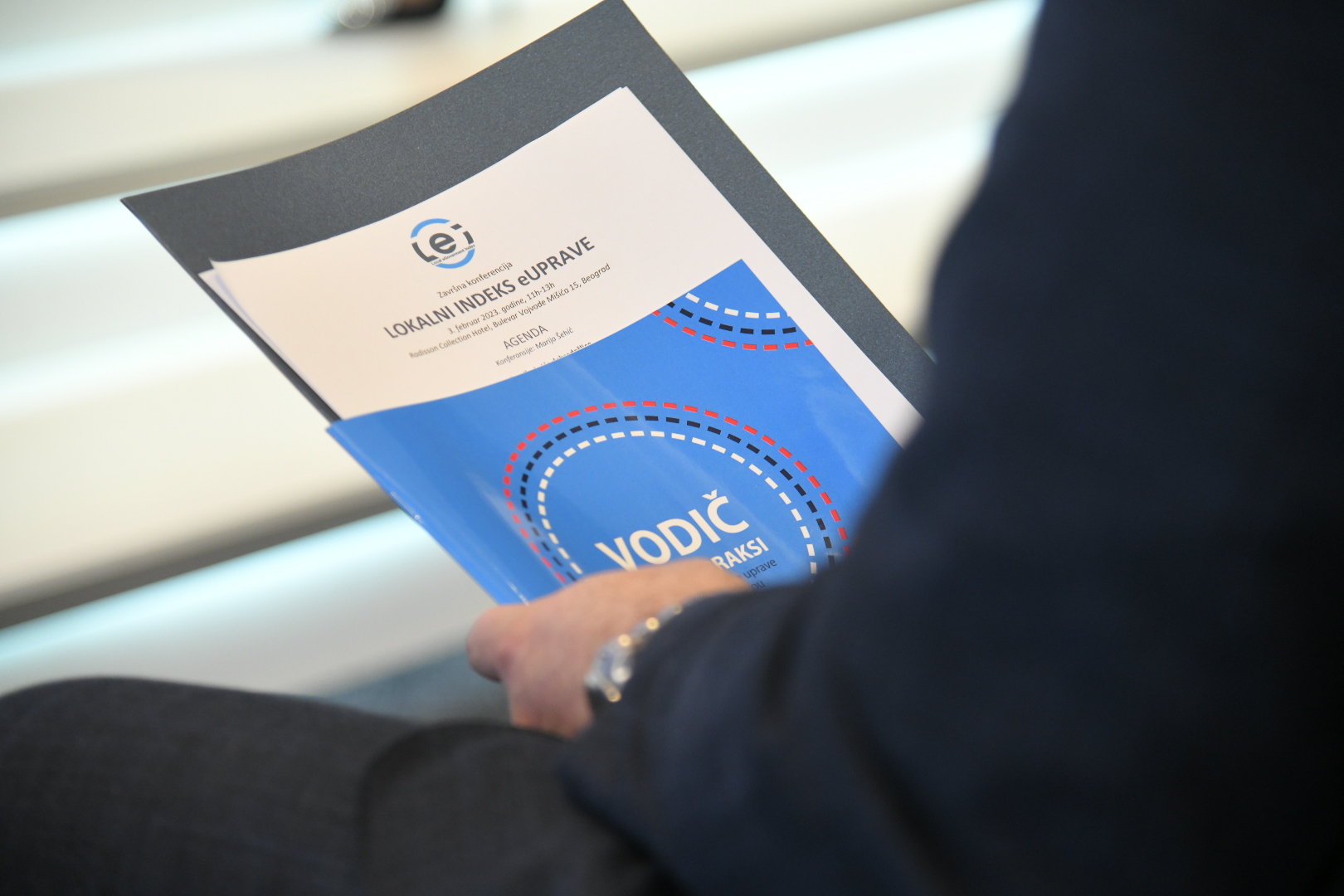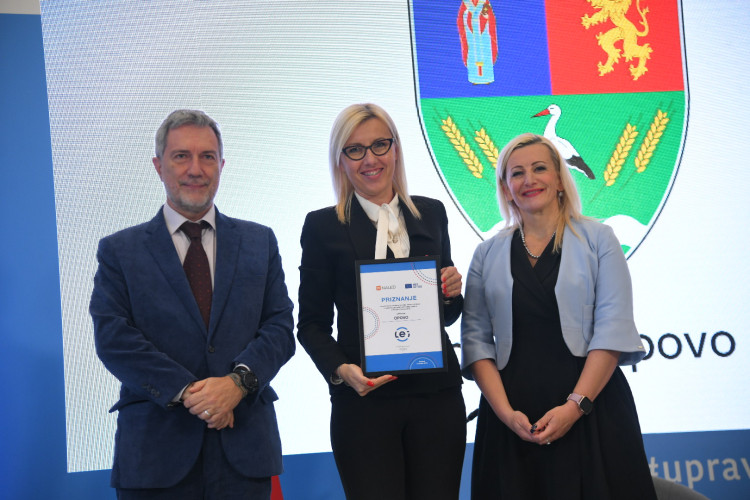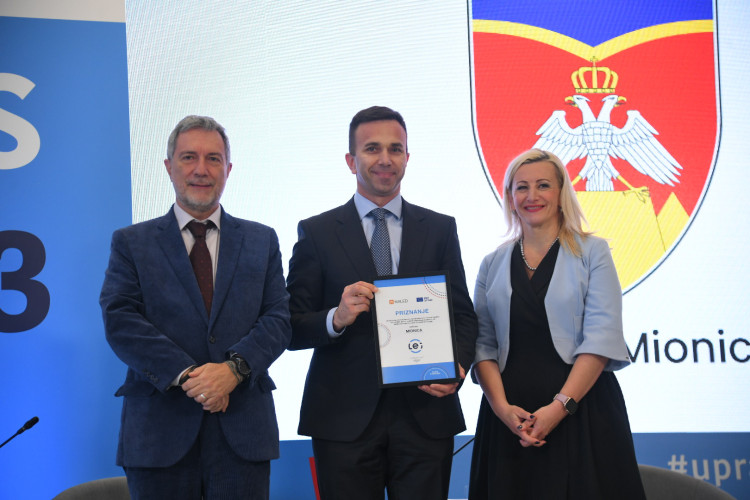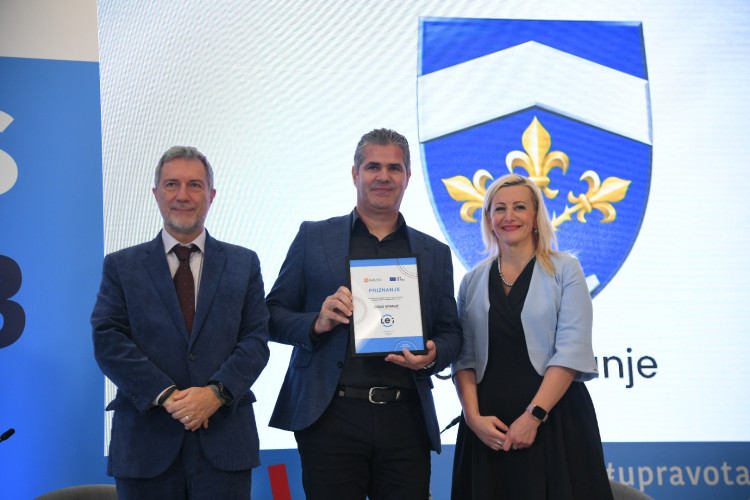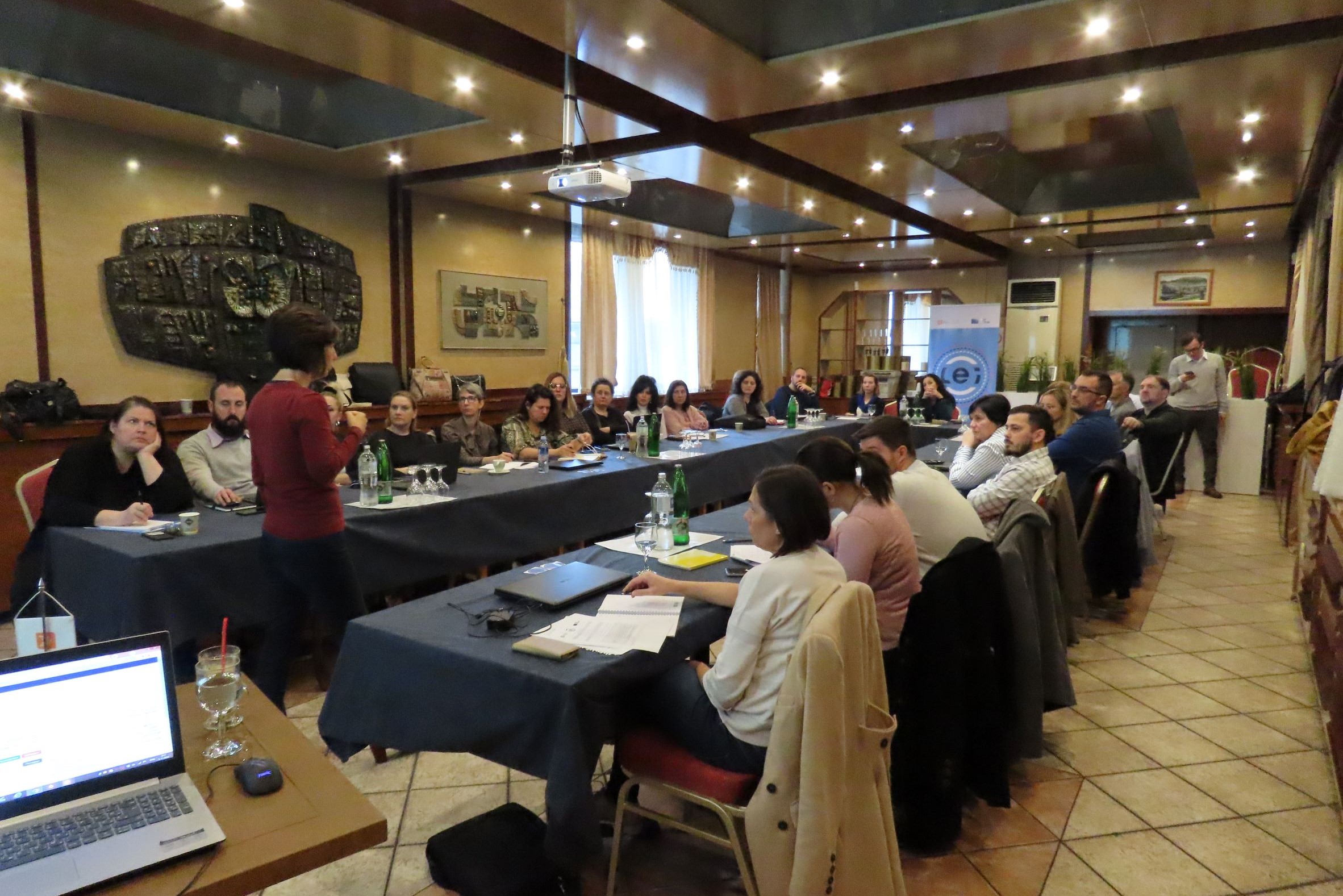Niš and Vranje have the best eGovernment, LEI Index shows the quality of eServices on the local level
Most cities and municipalities in Serbia still do not have sufficiently developed electronic services and there is a lot of room for improvement. This was shown by the results of the first, pilot measurement of the newly established Local eGovernment Index (LEI), which was presented to the public today. The current development of eGovernment on the local level is rated as moderately developed with 40% fulfillment of the LEI index criteria.
Niš and Vranje can boast the best performance. In addition to having the most efficient eGovernment, they are also the only local governments classified as more developed. There are 57 cities and municipalities in the medium developed category, while 60 are in the less developed category. There are no local government that fall within the highly developed, or underdeveloped category.
- Cities and municipalities have so far managed to digitize 20% of the procedures in their jurisdiction, and we see that there is still work ahead of us. The LEI index showed that local governments need strong support in the further development of eServices, and its greatest value is that it clearly shows where that support needs to be directed. Financial, material and human capacities represent a big challenge. Average allocations for the development of eGovernment are only 40,000 euros per year. In two-thirds of the cities and municipalities, the computers they work on are between five and eight years old, and they have only two IT experts on average - said Nikola Dašić, Vice President of NALED Managing Board and Mayor of Kragujevac.
According to him, local governments have contributed to the strong development of eGovernment in Serbia over the past five years. They successfully implement numerous electronic procedures such as issuing electronic construction permits, eKindergarten and tax collection through local tax administrations portals. Digitization of registers has made it possible for citizens to no longer have to bring statements and other documents to the counters, because municipal officials obtain this data through the service bus.
The LEI index was developed within the project "Establishment of Local eGovernment Index for local governments in the Republic of Serbia", implemented by NALED and co-financed by the European Union. The Head of Cooperation of the EU Delegation in Serbia, Nikola Bertolini, pointed out at the final conference of the project that 70% of the EU legal framework is applied at the level of local governments and citizens should be aware of that, which is why a lot of focus is placed on receiving clear and understandable information, and the possibility of giving feedback, which is the essence of electronic services and eGovernment.
- Human capacities are the biggest challenge in administration. The role of municipalities in the process of EU integration should be as large as possible, not only in terms of digitization but also the transformation of the entire concept of public administration. The officials should be well capable and be service-oriented, but also better paid, and we need to work on keeping the young people on the local level - added Bertolini.
The LEI index evaluates the equipment and readiness of local governments to provide quality and accessible eServices and consists of four basic groups of indicators: the number and quality of eServices, infrastructure equipment, the capacity of local officials to provide electronic services, as well as the level of information and involvement of citizens in establishing and using the electronic services. Cities and municipalities record the highest degree of digitization in the domain of infrastructure (49%) and citizen involvement (43%), while they are somewhat weaker when it comes to human resources (37%) and the representation and quality of eServices (32%).
State Secretary in the Ministry of State Administration and Local Government Čedomir Rakić highlighted the value of the LEI index as a catalyst for the development of digitalization at the local level, expecting that it will motivate local governments for progress and greater investment in local infrastructure, digital services and human capacities. "It is extremely important that the new proposal for the eGovernment development program for the period 2023-2025 recognizes the importance of a local index and it will be a part of our digital ambitions indicators and plans for the next period," said Rakić.
The graphic presentation of the LEI index results is available at the website www.lei.rs in the form of an interactive map together with information for all cities and municipalities, for each of the assessed components, also allowing comparison between two selected municipalities or cities, as well as a comparison with the average result among all municipalities. The research involved 141 local governments, and after the urban municipalities of Belgrade, Niš, Užice, Požarevac and Vranje were included as a single local government, the final ranking includes 119 cities and municipalities.
As part of the project, a Best Practice Guide in the field of eGovernment on the local level was created, as a roadmap for the development of transparent and responsible eGovernment. It is intended for municipalities and cities that showed weaker results, with room for further progress in this year's measurement, and it contains useful guidelines, highlighting positive examples in this area.
The creation of the index was supported by the Ministry of State Administration and Local Government, while the data for the LEI research was checked through the databases of the National Statistics Office, the Regulatory Agency for Electronic Communications and Postal Services (RATEL), the Office for IT and eGovernment and the Republic Geodetic Authority.
Special recognition
Cities and municipalities that achieved the best results, both in the field of eGovernment development as a whole and in individual categories, were presented with special awards. In addition to Niš and Vranje as the most successful local governments in the development of eGovernment, the awards were also presented to Užice as a best practice example, and the two best municipalities in each of the categories:
- In the field of infrastructure: Opovo and Svilajnac
- In the area of human resources and competence: Kanjiža and Vrnjačka Banja
- In the area of representation and quality of eServices: Crna Trava and Kragujevac
- In the area of involving citizens in the work of local government through IT: Bor and Mionica

